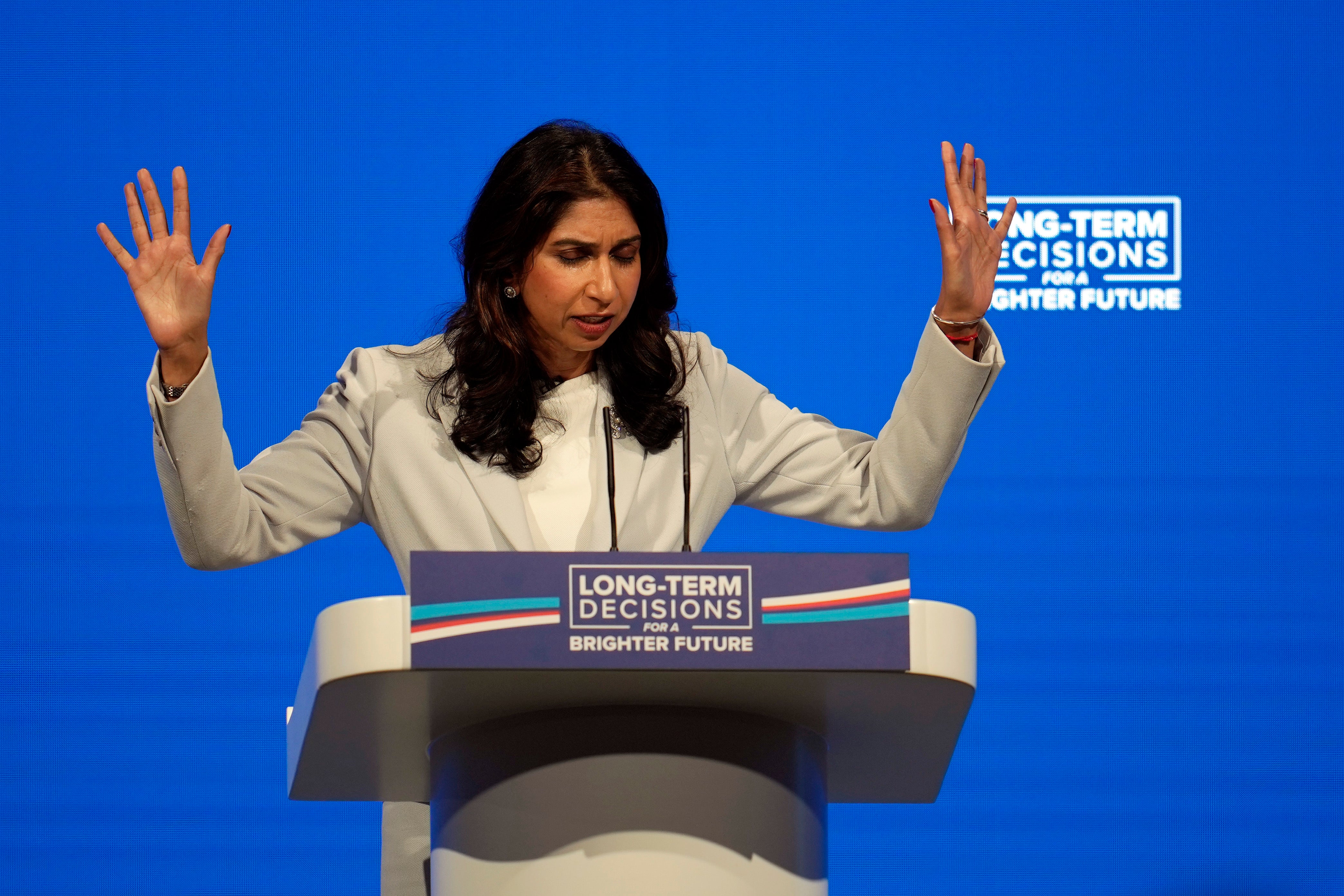Why Tories are opening a new front in the culture wars
Staring defeat in the face, the Conservatives are turning on trans people to wrongfoot Labour, says Sean O’Grady


Sometimes it is extraordinarily easy to spot a political party’s tactics, and the Conservatives’ reliance on “wedge” issues is becoming a little embarrassing. For one thing, it smacks of insecurity. Banging on about small boats and trans rights sends out a signal that they’ve given up winning the argument on the bigger issues – the economy, the cost of living crisis, transport (including HS2), the NHS, schools, and housing. Instead of wanting to talk about nurses’ pay or cutting waiting lists (where one of Rishi Sunak’s promises already looks lost), Steve Barclay, the health secretary, wants to stoke up an argument about “sex specific” language and trans patients on hospital wards. It is the sort of “culture wars” issue that invigorates party conference activists, but not the wider public.
How many fronts have been opened up in the ‘culture wars’?
About one or two every day so far this week, on top of various other recent skirmishes. It is as if Conservative central office has ordered every minister making a speech to launch some sort of socially-conservative assault. Thus, on the same day we have Mr Barclay talking about “sex specific language” and trans patients on hospital wards, closely followed by home secretary Suella Braverman announcing changes in the rules on trans prisoners.
Other fronts include race, after Ms Braverman’s declaration that multiculturalism has “failed”, followed by business secretary Kemi Badenoch’s possibly unfounded claim that Britain is the best country in the world in which to be black. All of that on top of Rishi Sunak ending the cross-party consensus on climate change and scrapping some net zero measures while pledging to “end the war on the motorist”.
Some ministers, such as energy secretary Clare Coutinho and Mark Harper, the transport secretary, have even begun scrapping with an imaginary enemy – fabricating claims about a “meat tax” planned by Labour, or local councils imposing Taliban-like limits on the movement of citizens in so-called 15-minute cities. Dividing lines in politics can work, provided they’re not completely fictional.
What’s the point of all this?
First, activists enjoy it and it takes their minds off the opinion polls and a run of mostly disastrous local elections and by-election results.
Second, it resonates quite well with traditional Tory voters and socially conservative newcomers who arrived after the Brexit referendum and the 2019 general election. So it might take the edge off the Labour lead.
Third, this blizzard of social issues is designed to distract and disrupt the Labour conference in coming days. Shadow ministers will be bombarded with questions about taxing bacon, or what a woman is, multiculturalism and so on. Media coverage will focus on any potential split in Labour ranks on these issues, and Labour’s own messaging on the economy and public services will be lost in a cultural fog.
Will it work?
In a stagnant economy and a society feeling a sense of malaise, it’s all the governing party has got to go on. It may work to some extent, pushing Labour into defending positions such as green measures.
On the other hand, Labour should be well prepared on such issues. For example, Yvette Cooper has some answers about immigration policy – faster processing and safe routes – and can throw back multiple Tory policy failures. The Conservatives are vulnerable on their record on the most salient issues for voters, and there’s a sense they are running out of ideas and talent. Tory deputy chair Lee Anderson has pointed out that the 2019 election, which was won on Boris, Brexit and Corbyn, can’t happen again; hence the culture wars.
Aren’t some voters repelled by this?
Yes, many find the language used by the Tories on sensitive issues aggressive, and the tone strident and frightening. For some, fatigued by constant Brexit wars and the bitter controversies around Partygate, arguing about trans rights seems a pointless diversion. Given the small numbers involved, the practicalities of individuals with particular circumstances can be managed by local NHS trusts and prisons on a pragmatic basis. Top-down rules tend to get snagged on the detail of cases. Britain is bored with fighting with itself, and has stopped listening to the Tories. Sunak came late to the premiership, after more than a decade in power, and voters have made their minds up long ago. Given a choice between Ms Braverman’s constant tearing at wounds or a quieter life with dull Sir Keir Starmer, Labour doesn’t feel such a dismal prospect.





Join our commenting forum
Join thought-provoking conversations, follow other Independent readers and see their replies
Comments